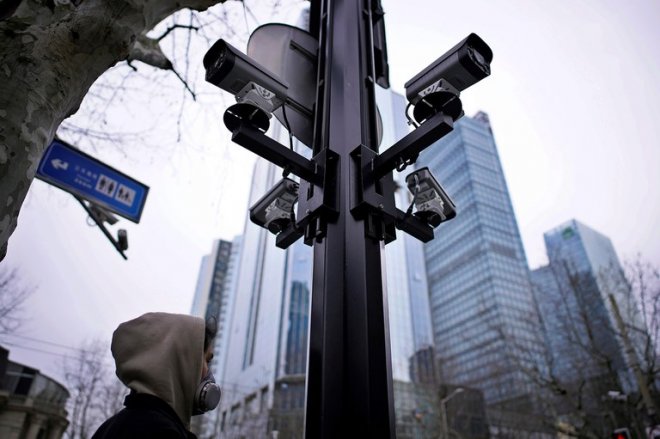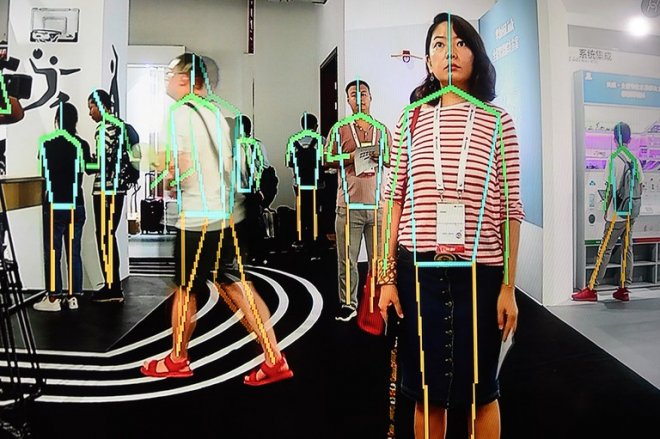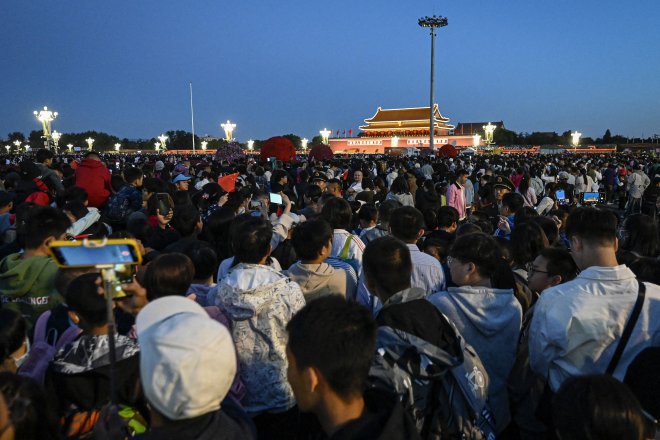China can still use big data to control citizens despite ditching COVID-19 app
The Chinese government still has access to vast amounts of data on its citizens" movements, despite pausing a hugely unpopular COVID-19 tracker app in the wake of nationwide protests, analysts told Radio Free Asia in recent interviews.China paused the use of its “Health Code” smartphone app tracking citizens" COVID-19 status as well as their movements in and out of high-risk areas on Dec. 13, as part of overall loosening of the zero-COVID policy.
But the app, which tracked the movements of the whole population, together with the immune status of COVID-19 cases and contacts, has already reaped unprecedented amounts of data on the country"s population, including residents of Hong Kong and Macau.
With its algorithms shrouded in secrecy, little is known about how that data is gathered or the purposes it could be used for in future.
Yang Haiying, a professor at Japan"s Shizuoka University, said the ruling Chinese Communist Party decided to pause the app to maintain political stability following a wave of anti-lockdown protests across China in late November.
"The government will continue to manage and monitor the whole of society using big data," Yang said. "[These protests] didn"t form the basis for a democratic movement."
Signs had already emerged of widespread "mission creep" from the app, with complaints from users that their "health codes" had changed from green to amber after they bought over-the-counter cold remedies or pain relief medication, forcing them to take a COVID-19 test before being able to leave home under the old restrictions.
A former contact tracing official surnamed Ma told Radio Free Asia in January that the government was making use of "big data" on people"s shopping habits and movements to try to preempt outbreaks of COVID-19.
This means that seemingly straightforward transactions like the purchase of cold remedies or painkillers will be uploaded to the database, triggering an alert.
"The database alerts the police, and within five minutes of your buying that medicine, your local neighborhood committee will know, regardless of whether you bought it online or in a street store," Ma said at the time.
Separately, China said on Nov. 9 that it is planning to digitize the medical records of its 1.4 billion people, harnessing the power of big data to track the health status of everyone in the country.
The National Health Commission and other health-related agencies issued a directive calling for the installation of "dynamically managed electronic health records and universal electronic health codes for every resident" by 2025.
In practice, this will mean that the healthcare records of every individual in mainland China will be digitized, linked to their national ID card number via a national platform, and integrated with a unified health code that can be widely shared among hospitals, clinics and, potentially, government agencies.
 In this March 4, 2020 photo, a man walks under surveillance cameras in Shanghai, China March 4, 2020. Credit: Aly Song/Reuters‘You can be tracked at any time’
In this March 4, 2020 photo, a man walks under surveillance cameras in Shanghai, China March 4, 2020. Credit: Aly Song/Reuters‘You can be tracked at any time’The “Health Code” smartphone app has also apparently been used to control the movements of protesters against account freezes during a fraud investigation at rural banks in the central province of Henan, according to the Communist Party-backed Global Times newspaper.
Chinese political scholar Chen Daoyin said the new COVID-19 rules don"t mean the government will give up its strict monitoring of the public any time soon.
"The travel tracker works mainly off your mobile phone signal, because mobile phones in mainland China are all either China Unicom, China Mobile and China Telecom, so that data is already available," Chen said.
"During the past three years, it was used to track people"s movements [in the app]."
"Now that the COVID-19 itinerary tracker has been stopped, they can still use that data if they need to track the movements of specific groups of people, as we saw during the [anti-lockdown protests]," Chen said.
"You can be tracked at any time if you have your phone with you, and stopping the Health Code app doesn"t prevent that," he said. "They have just stopped tracking the entire population [everywhere at all times], and that’s only for economic reasons."
Chen said that little will change politically as long as party leader Xi Jinping remains in power, and widespread controls on freedom of speech look set to remain.
 In this Aug. 10, 2019 photo, a display on a screen shows tracking modes from a Huawei device during the Huawei developer conference at the Huawei Campus in Dongguan, Guangdong province, China. Credit: Dufour/AFPAn enormous accumulation of big data
In this Aug. 10, 2019 photo, a display on a screen shows tracking modes from a Huawei device during the Huawei developer conference at the Huawei Campus in Dongguan, Guangdong province, China. Credit: Dufour/AFPAn enormous accumulation of big dataCurrent affairs commentator Fang Yuan said the government can easily keep monitoring people using the big data it already has.
"There has been an enormous accumulation of big data over the past few years, with very detailed personal information available," Fang said. "Those in power aren"t going to give up such a tasty morsel any time soon."
He gave as an example the "Chongqing model" of law enforcement and political control that was used to crack down on those labeled "organized crime" members in the southwestern megacity under now-jailed party chief Bo Xilai, but that was later rolled out nationwide.
"The concept demonstrated by the Chongqing model has continued, even though the public security system [under now-jailed former security czar Zhou Yongkang] was defanged," Fang said.
"Similarly, the app may have been removed from surface view, but the government methods and processes it established can keep going."
Translated by Luisetta Mudie.
[圖擷取自網路,如有疑問請私訊]
|
本篇 |
不想錯過? 請追蹤FB專頁! |
| 喜歡這篇嗎?快分享吧! |
相關文章
AsianNewsCast























